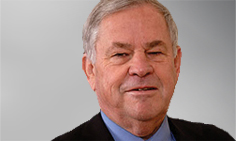By defining our goal more clearly, by making it seem more manageable and less remote, we can help all peoples to see it, to draw hope from it, and to move irresistibly toward it. John F Kennedy — American University commencement address, 10 June, 1963
AUSTRALIA assumed the chair of the United Nations (UN) Security Council on 1 September for one month.
Serving as chair of such an important body for one cycle of the moon may appear, well, lunatic, but we know that a lot can happen in politics in one day, let alone in 28 (or 30).
Think Syria and consider yourself blessed that you are not Gary Quinlan, Australia’s distinguished Ambassador and Permanent Representative to the UN, who is in the hot chair.
While Quinlan will chair the Security Council, the UN General Assembly will meet on 25 September to deliberate on a new set of goals to replace the Millennium Development Goals (MDGs) that conclude in 2015. These are likely to be called the Sustainable Development Goals.
The meeting will outline actions to further diminish global poverty, improve health worldwide and also achieve sustainability of the environment, the food supply, finite resources for manufacture and transport, water and energy. Australia can make a strong contribution.
The history of the international political effort necessary to develop the antecedent MDGs after 2015 is both instructive and encouraging.
The MDGs — eight statements of aspiration that were agreed by 189 UN member states and over 20 international organisations in 2000 — were overarched by one grand intention: to cut extreme poverty (defined as living on less than US$1.25 a day) by 50%, relative to 1990, by 2015.
The goals were signposts to reducing infant and maternal mortality, improving educational opportunity for children and controlling communicable disease. The negotiation among signatory countries was tough and pragmatic — cuts here, slices there with deft word-weaving meant that the final product was, rather like Sydney’s opera house, not quite what the architects envisioned, but recognisable and functional.
Surviving the fires of 9/11, the tempests of Iraq and Afghanistan and, more recently, the global financial meltdown has revealed surprising resilience in the MDGs. Even more astonishing is the reality of what they have helped achieve.
No one has fully unravelled the mystery of the motivating power of goals, but it is considerable. Extreme poverty has been halved, 5 years ahead of schedule. Infant mortality rates have tumbled. Maternal mortality rates have also fallen somewhat.
The Economist recently celebrated the decrease in global abject poverty. “The world has done a remarkable job of lifting almost a billion people out of extreme poverty in the past 20 years”, it said.
Jeffrey Sachs, director of Columbia University’s Earth Institute and special advisor to the UN Secretary-General on the MDGs since 2001, was a major force in the development of the goals.
As Sachs puts it:
From 2000 to 2010, Sub-Saharan Africa’s annual economic growth, which averaged 2.3% from 1990 to 2000, more than doubled, to 5.7% during the 2000– 2010 period …
Likewise, as of 2000, there were still no official donor-supported programs to enable poor Africans to receive antiretroviral treatment for AIDS. [Now] more than six million Africans [are under treatment on such programs].
Sachs quoted Kennedy, as in the epigraph above, about the power of goals.
Now, growing concerns with global sustainability, the health consequences of rising ocean levels and threats to global ecology and the food supply mean that the agenda is different to that in 2000 when the MDGs were set.
Extreme poverty remains a challenge, but more so within countries than among countries. Sustainability is a worry for all nations, albeit differently expressed in different countries. It is unquestionably global.
Australia’s membership of the Security Council demonstrates that we are judged to be capable of global leadership. We need to pursue this with energy and compassion.
When Australia was developing health goals and targets in the 1980s and 90s, Jason Grossman and I wrote in the MJA, “Targets matter, but so does the archery” (MJA 1992; 157: 291-292). Our argument was that how we hit targets matters as much as whether we hit them at all.
The recent MJA, MDA National, Nossal Global Health competition sought accounts of leadership in global health. As the winning student essay reminds us, humane values are critical to our efforts. Technology, money and capacity-building are necessary but not sufficient.
We may have a magic moment, with our role in the Security Council enabling our efforts to improve global health through participating in shaping goals for sustainable development.
Sustainable success will depend on the way we do it and the clarity and strength with which we endorse values of humane concern and plans that nurture human flourishing.
Professor Stephen Leeder is the editor-in-chief of the MJA and professor of public health and community medicine at the University of Sydney.
This article is reproduced from the MJA.

 more_vert
more_vert